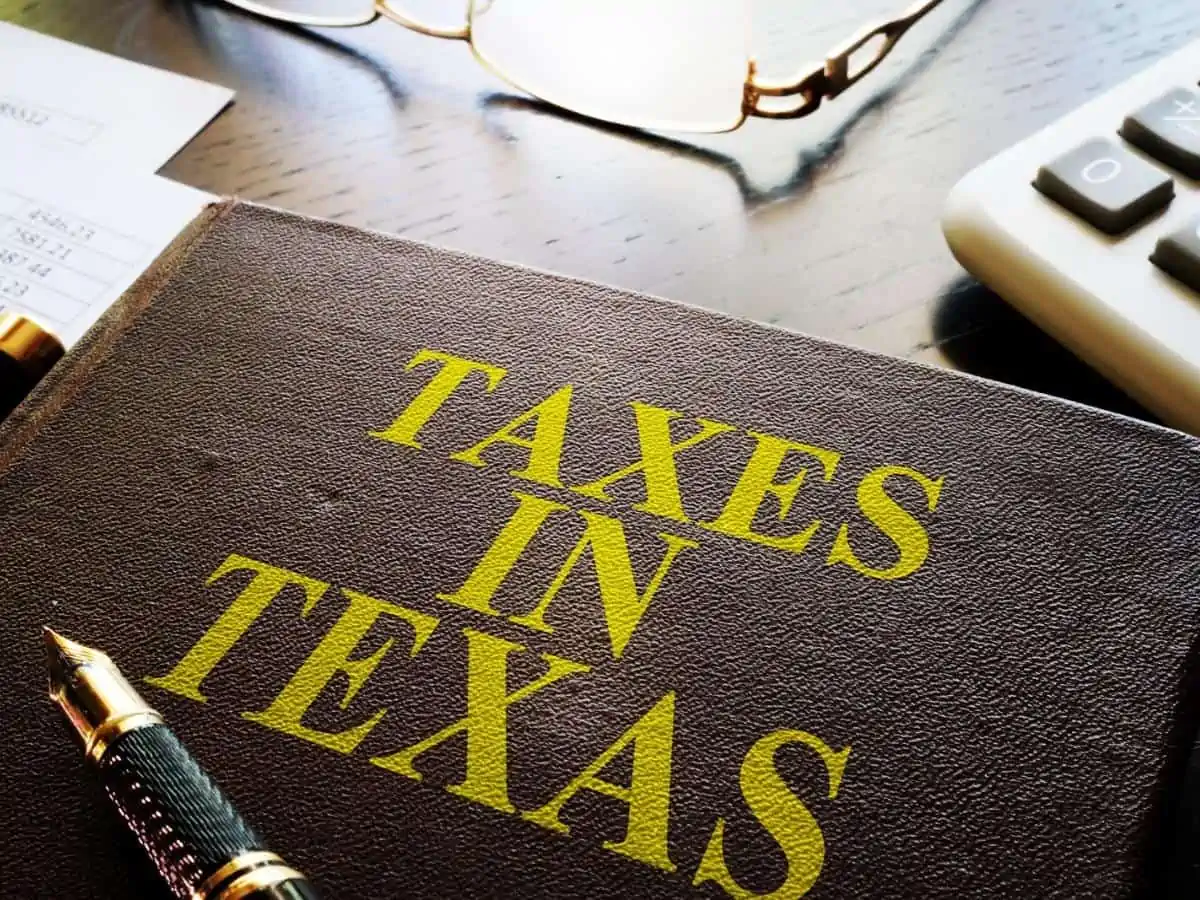Texas is one of nine states that don’t have a personal income tax. In this article, we dive deeper into Texas’s no-income-tax policy.
Texas has no income tax because this tax is regulated according to state law, not federal law. And, since the Texas Constitution doesn’t include income taxes, the state generates revenue from other sources. These include sales and use, property, and corporate income taxes.

How Come Texas Has No Income Tax?
Not only does the Texas Constitution have no income tax, it downright forbids it. Since the taxing system for each state is regulated by this state’s law instead of federal law, legislators voted against the personal income tax, which was removed in 2019.
This is known as Texas Proposition 4, the Prohibit State Income Tax on Individuals Amendment. Of course, the next logical question is how Texas makes up for the lack of income tax to provide different services to its citizens.
Texas has other taxes that, combined, might end up higher than the individual income tax. Sales and use, property, and corporate income taxes can add up to the overall taxes required by a person, which covers all the services the state provides.
Sales and Use Taxes
The sales and use taxes usually demand a 6.25% tax on most taxable sales. Products that fit that description include:
- Appliances
- Bags
- Books
- Carbonated beverages
- All paper items
- Coffee
- Cosmetics
- Drinks
- School supplies
Yet, some items that you get at your nearest grocery store don’t fall into that category, such as:
- Most groceries (milk, flour, sugar, fruits, vegetables, and generally food-related items)
- Many health-related products (over-the-counter medications, vitamins, supplements, etc.)
- Baby items (baby milk, baby food, formula, etc.)
- Baked goods
- Condiments and spices
- Wound care items (adhesive bandages, gauze, medical tape, and the like)
- Wholesale items
- Previously taxed products
Corporate Income Taxes
Also known as franchise income taxes, these taxes are associated with business entities in Texas. Depending on the type, income threshold, and business size, the tax rate can go from 0.331% to 0.75% on the overall revenue per year.
A few examples of businesses that are charged the franchise income taxes include:
- Banks
- Limited liability companies
- Partnerships
- Corporations
- S corporations
Property Taxes
Surprisingly, Texas doesn’t charge taxes on real estate. However, you’ll still pay property taxes to your county, which range from one place to another based on the appraisal you get for your property.
On average, the property tax rate is around 1.8%, landing Texas a unique spot as having the sixth highest property taxes in the United States!

Is Texas An Affordable State Compared
Even though Texas had a total tax burden of approximately 9.8% in 2018, and it’s one of the most affordable states to live in, it’s not all unicorns and rainbows. You need to keep several factors in mind to determine whether or not living in the Lone-Star State can help you save money.
Just because there’s no income tax doesn’t mean your yearly taxes won’t add up significantly. To get the full picture, here’s a quick breakdown of the pros and cons of living in Texas.
Pros
- States with no income taxes attract more workers
- You won’t need to worry about paying a tax for your income no matter how large it becomes
- Texas doesn’t tax inheritances
Cons
- Texas has sizable property taxes (and they grow as the value of your property gets higher)
- You can expect more significant taxes on taxable goods in comparison to other states
- No income tax sometimes means lower spendings on infrastructure and public services

Is Affordable Living Better with No Income Tax
No. If a state doesn’t have a personal income tax, it doesn’t necessarily mean that living there can help you save money since this isn’t an accurate representation of its affordability.
On the other hand, a major factor like the total tax burden is the one you should take into account before moving to a state like Texas. Of course, it doesn’t hurt to factor in the lack of the income task, too!
In addition to those, it’s always a good idea to consider other things like the cost of living, healthcare costs, job opportunities, and education system before deciding to relocate to Texas.
Once you compare those factors to your needs and budget, you should finally have your answer!
What other states have no income tax?
Besides Texas, eight more states have stopped charging their citizens personal income taxes. These states are:
- Nevada
- Alaska
- Florida
- Tennessee
- Washington
- South Dakota
- Wyoming
The eighth state is New Hampshire, which doesn’t demand taxes on earned wages.
How do other states that have no income tax compare to Texas?
Where does Texas rank regarding the total tax burden value and affordability compared to similar states?
Here’s a table that explains it all:
| State | Total Tax Burden (percentage of income) | Affordability (1 being the best) |
| Texas | 8.19% | 22 |
| Nevada | 8.23% | 41 |
| Alaska | 5.10% | 47 |
| Florida | 6.97% | 31 |
| Tennessee | 5.74% | 17 |
| Washington | 8.34% | 44 |
| South Dakota | 7.37% | 14 |
| Wyoming | 6.14% | 33 |
| New Hampshire | 6.84% | 38 |
References
- Texas has no income tax: forbes.com
- Texas Constitution doesn’t include income taxes: tlc.texas.gov
- Texas Proposition 4, the Prohibit State Income Tax on Individuals Amendment: ballotpedia.org
- The sales and use demand a 6.25% tax on most taxable sales: comptroller.texas.gov
- Texas has the sixth highest property taxes in the U.S.: afic.co
- Texas had a total tax burden of approximately 9.8% in 2018: comptroller.texas.gov
Christian Linden is a seasoned writer and contributor at Texas View, specializing in topics that resonate with the Texan community. With over a decade of experience in journalism, Christian brings a wealth of knowledge in local politics, culture, and lifestyle. He holds a Bachelor's degree in Communications from the University of Texas. When he's not writing, Christian enjoys spending weekends traveling across Texas with his family, exploring everything from bustling cities to serene landscapes.











